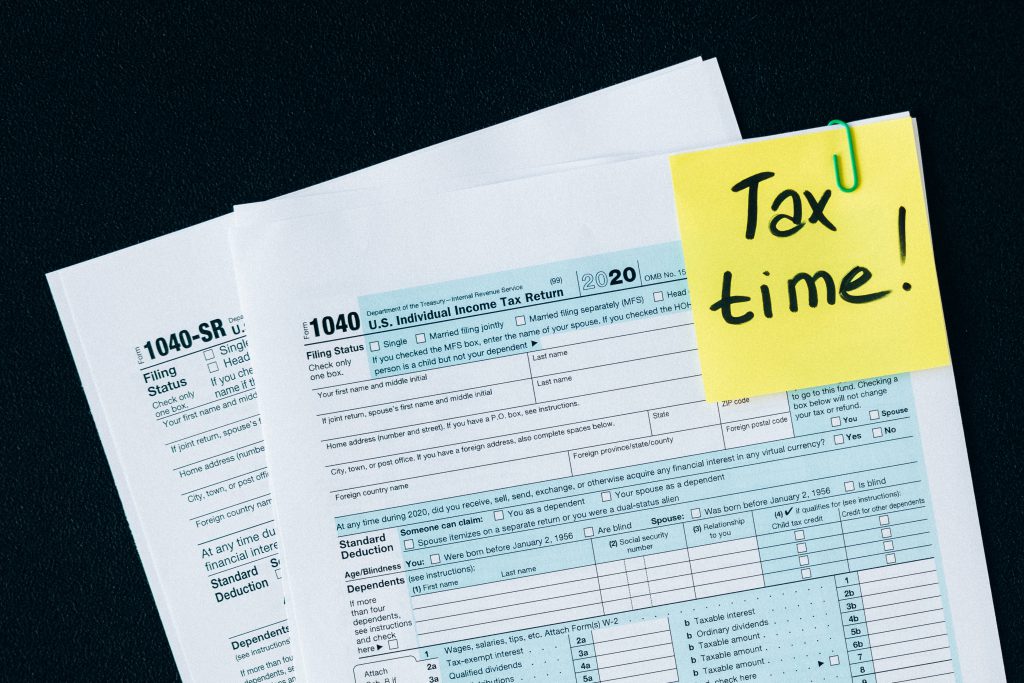Common Myths & Misconceptions about Doing Taxes
Tax season is upon us, and that can be stressful enough without having to wonder if you’re doing yours right. As you sort fact from fiction, keep in mind: there are many tax myths and misconceptions one might hear at work or read online. And they can lead to costly mistakes if not addressed head-on.
To get started on the right foot, find the answer to three basic questions:
- Your filing status
- Whether you need to file
- What deductions might apply to you
At Community Currency Exchanges (CCEA), we like all things money-related to be as simple and clear as possible. So with that in mind, take a look at some of the more popular misconceptions regarding taxes – and what you should know about doing your own.
Filing Tax Returns as Single Versus Jointly When You’re Married (but Divorcing)
Many people believe couples should file their taxes separately if they are married but going through a divorce. The truth is that for most couples, it is beneficial for them to file jointly in order to take advantage of certain deductions and credits. Filing jointly usually helps reduce the amount of taxes owed overall and can even lead to a larger refund than filing separately would!
That said, there are some cases where filing separately could be beneficial—for instance, if one spouse has high medical expenses or large capital gains. In these cases, it may make sense to file separately so that one spouse isn’t “dragging down” the other in terms of their refund or taxes owed.
Not Needing To Pay Taxes If You Don’t Make Much Money
Another popular myth is that people who don’t make much money don’t need to pay taxes. This is true for some people – but whether you need to file depends on each individual situation. According to the Internal Revenue Services (IRS): “Most U.S. citizens – and permanent residents who work in the United States – need to file a tax return if they make more than a certain amount for the year. You may want to file even if you make less than that amount, because you may get money back if you file.”
Their website can answer many other tax related questions you might have about:
- How to file taxes
- When to file taxes
- Where to file taxes
- Who should file taxes
That said, everyone who earns an income must generally pay taxes unless they meet certain income requirements set by the government (e.g., low-income households). Even those earning less than $12,200 may still owe taxes on certain types of income such as investment income or self-employment income. It’s important to remember that no matter how small your salary is, you usually must report any earned income on your tax return!
Taking All Available Deductions, Ignoring IRS Rules
You may have met folks who think that taking every available deduction will result in a larger refund or lower amount owed in taxes. But this isn’t always the case. Not only that, declaring deductions improperly can get you in trouble if the IRS decides to conduct an audit.
Depending on your situation, taking all available deductions could actually end up costing you more money in taxes than had you not taken them. It’s important to do your research before taking any deductions or credits; doing so can save you time and money in the long run.
Get Income Tax Preparation at Your Nearest Currency Exchange Service
Want help with your income tax preparation? Bring your W-2 and financial information to any participating community currency exchange (CCEA). Call first for more details on what to bring.
Our experts will crunch the numbers so you don’t have to.
With so many myths circulating around doing taxes each year, it’s important to stay informed about what’s true and what isn’t when it comes time to file your returns. So be sure to do your research before making any decisions about filing your annual taxes. The time spent researching now will provide peace of mind later.
Filing taxes is also easier when you’re on top of your finances. At Currency Exchanges, you can do everything from cash checks to get a prepaid debit card to pay bills electronically, all under one roof. Check us out online or stop by your nearest location to find out how we can simplify your finances today!

With over 350 locations, many open nights, weekends, and holidays (and several stores with 24/7 availability), you can rest easy knowing your financial needs can be taken care of when you need them most. We’re in the heart of every community. Don’t believe us? See for yourself.